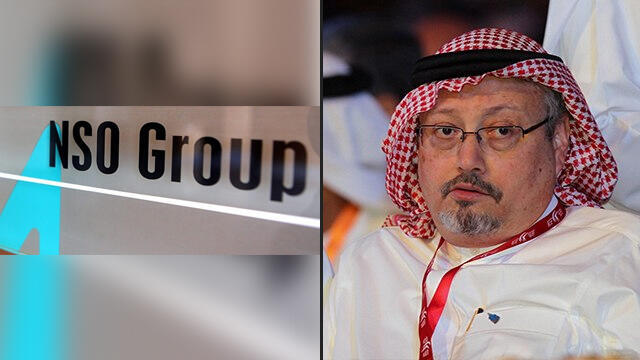Getting your Trinity Audio player ready...
Saudi Arabia's Crown Prince Mohammed bin Salman reportedly used advanced cybersecurity technology developed by the Israeli NSO Group and its subsidiary, Q Cyber Technologies, among others companies, to assassinate Saudi journalist Jamal Khashoggi, The Washington Post reported on Friday.
and Twitter
David R. Ignatius, an associate editor and columnist for The Washington Post, claimed in a comprehensive article that Israel had authorized the NSO Group to sell Saudi Arabia the "Pegasus" surveillance software, in exchange for Riyadh's cooperation in fighting Iran.
According to the newspaper, Israel's declared purpose was to launch a cyber war—led by one of the prime suspects in Khashoggi's murder—against extremists and other Saudi dissidents.
The Israeli spy software was used to keep track of Khashoggi's e-mail correspondence with a political exile named Omar Abdulaziz ,who now resides in Canada.
Abdulaziz and Khashoggi attempted to engage social media users against bin Salman, which made them a target for the Saudi crown prince.
Last week, Abdulaziz filed a lawsuit against the NSO group, claiming its sophisticated spyware targeted him and helped lead to the killing of his friend, Khashoggi.
The Saudi dissident is demanding NIS 600,000—about $160,000—in damages from the company, as well as an order preventing it from continuing selling Pegasus to Saudi Arabia.
"There is circumstantial evidence pointing to a connection between Pegasus and Khashoggi's murder," Abdulaziz claimed.
Documentation of Khashoggi arriving at the Saudi Embassy in Istanbul
(צילום: אלי סגל)
In addition, he added that the Israeli companies were negligent, and did not act in a reasonable manner.
The Post reported that Q Cyber Technologies promised the Saudis access to six countries in the Middle East, and provided them with direct technical support while using the spy software.
In response, the NSO Group said in a statement: "The company operates only under the security export rules, and with the guidance and supervision of all security elements.
"NSO Groups' technology assists government and law enforcement bodies in fighting crime and terrorism. To this day, our developments have helped governments prevent suicide bombings, arrest drug lords and human trafficking networks, and retrieve kidnapping victims," the statement read.
"Our software are operated exclusively by (government and law enforcement bodies), without NSO Group's involvement. Due to security reasons, we are unable to elaborate on whether a certain government is allowed to use our technology," the statement concluded.






